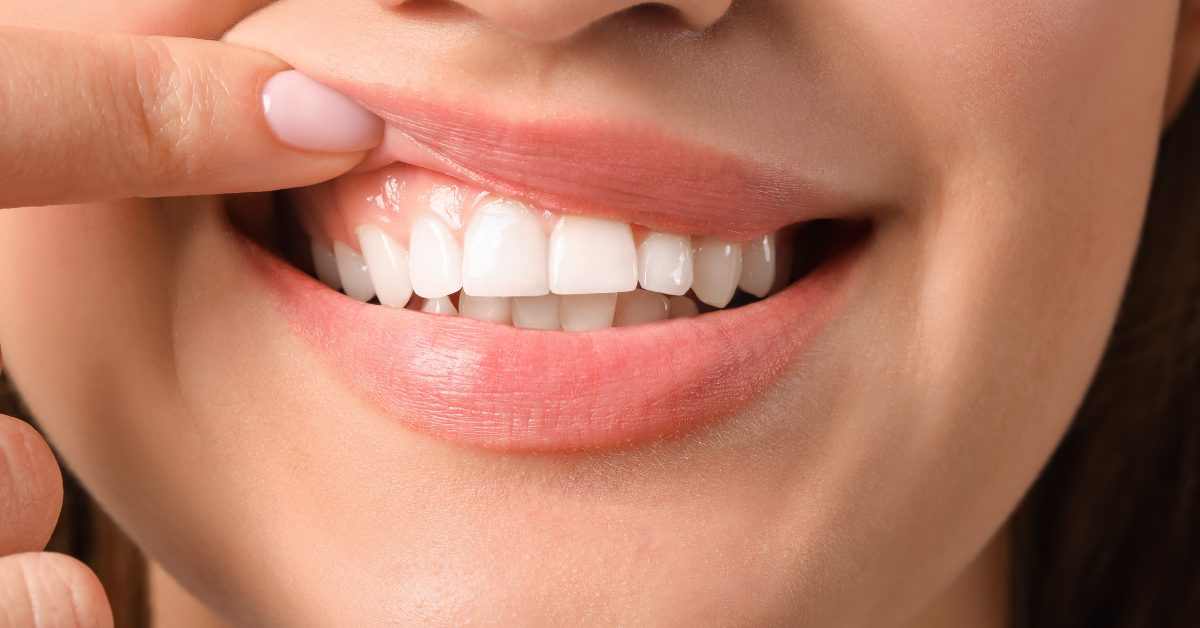You may not realise it, but the health of your gums plays a crucial role in your overall well-being. Contrary to popular belief, gum health is not just about preventing bad breath and tooth decay. It extends far beyond that. In fact, research has shown a direct link between gum disease and serious health conditions like heart disease and diabetes. So, if you want to maintain a healthy body, taking care of your gums is a must.
Let’s explore why good gum health is so important and how you can achieve it.
The Link Between Gum Health and Overall Health
In an article titled ‘Importance of Good Gum Health’, it’s now time to discuss the subtopic of ‘The Link Between Gum Health and Overall Health’.
It’s important for you to understand how gum health is connected to your overall health. Maintaining good oral hygiene isn’t only for a healthy smile but also for preventing various systemic diseases.
Research has shown a strong association between gum disease and systemic diseases such as diabetes, heart disease, and respiratory infections. The bacteria present in gum disease can enter the bloodstream and spread to other parts of the body, leading to inflammation and potential health complications.
For example, individuals with gum disease are at a higher risk of developing diabetes, as the inflammation caused by gum disease can impair insulin sensitivity.
Furthermore, gum disease has been linked to an increased risk of heart disease. The same bacteria that cause gum disease can also contribute to the development of plaque in the arteries, leading to atherosclerosis and potential heart problems.
Additionally, individuals with gum disease are more susceptible to respiratory infections, as the bacteria can be inhaled into the lungs and cause respiratory issues.
By maintaining good oral hygiene and taking care of your gums, you can reduce the risk of developing these systemic diseases. This includes regular brushing, flossing, and visiting your dentist for check-ups and cleanings.
Taking proactive steps to improve your gum health not only benefits your smile but also contributes to your overall well-being.
Preventing Gum Disease: Why It Matters
Taking proactive steps to prevent gum disease is essential for maintaining optimal oral health and overall well-being. By implementing proper oral hygiene practices, you can significantly reduce your risk of developing gum disease and its negative consequences. Here are three important practices you should incorporate into your daily routine to prevent gum disease:
- Brushing and flossing regularly: Brush your teeth at least twice a day using a soft-bristled toothbrush and fluoride toothpaste. Additionally, floss between your teeth daily to remove plaque and food particles that brushing alone can’t reach.
- Using mouthwash: Rinse your mouth with an antimicrobial mouthwash after brushing and flossing. This helps kill bacteria and reduce plaque buildup, contributing to healthier gums.
- Regular dental check-ups: Visit your dentist for regular check-ups and professional cleanings. Your dentist can detect early signs of gum disease and provide appropriate treatment.
Preventing gum disease is crucial because it can have a significant impact on both your oral health and overall well-being. Untreated gum disease can lead to tooth loss, gum recession, and chronic bad breath. Moreover, research has shown that gum disease is linked to various systemic conditions, including heart disease, diabetes, and respiratory infections.
Maintaining Strong Gums for Healthy Teeth
By incorporating proper oral hygiene practices and regularly visiting your dentist, you can ensure the longevity and health of your teeth by maintaining strong gums. Strong gums are essential for healthy teeth because they provide the necessary support and protection.
One way to maintain strong gums is by preventing gum recession. Gum recession is when the gum tissue pulls away from the teeth, exposing the roots. This can lead to tooth sensitivity and an increased risk of tooth decay and tooth loss.
To prevent gum recession, it’s important to brush your teeth gently using a soft-bristled toothbrush and to floss daily to remove plaque and bacteria from between your teeth and along the gumline. Additionally, regular dental cleanings play a crucial role in maintaining strong gums.
During these cleanings, your dentist or dental hygienist will remove plaque and tartar buildup that can contribute to gum disease and gum recession. They’ll also provide a thorough examination of your gums to identify any potential issues early on.
The Role of Gum Health in Preventing Tooth Loss
To maintain healthy teeth and prevent tooth loss, you need strong gums and regular dental care. Your gum health plays a crucial role in preventing tooth loss by providing support and stability to your teeth.
Here are three ways in which gum health contributes to preventing tooth loss:
- Protecting against gum disease: Good gum health is essential in preventing gum disease, such as gingivitis and periodontitis. These conditions can lead to gum inflammation, infection, and ultimately tooth loss if left untreated. By maintaining proper dental hygiene, including regular brushing, flossing, and using mouthwash, you can help prevent gum disease and protect your teeth.
- Supporting tooth stability: Healthy gums act as a foundation for your teeth. They hold your teeth in place, providing stability and preventing them from becoming loose or shifting. When gums are weakened or damaged due to poor oral hygiene or gum disease, the risk of tooth loss increases.
- Promoting early detection and intervention: Regular dental check-ups are crucial in maintaining gum health and preventing tooth loss. During these visits, your dentist can assess your gum health, detect any signs of gum disease or other oral health issues, and provide timely intervention. Early detection and treatment of gum disease can help prevent further damage and potential tooth loss.
Strategies for Improving and Maintaining Good Gum Health
Make sure you prioritise regular dental cleanings and check-ups to maintain healthy gums.
In addition to professional care, there are several strategies you can implement to improve and maintain good gum health.
First and foremost, it’s crucial to establish good oral hygiene habits. Brush your teeth at least twice a day for two minutes each time, using a soft-bristled toothbrush and fluoride toothpaste. Don’t forget to clean the gum line and gently brush your gums to stimulate blood flow. Flossing daily is equally important, as it removes plaque and food particles from between your teeth and along the gum line.
Another key strategy is to pay attention to your diet and its impact on gum health. A balanced diet that includes fruits, vegetables, whole grains, lean proteins, and low-fat dairy products can provide essential nutrients for gum health, such as vitamin C and calcium. On the other hand, sugary and acidic foods and beverages should be limited, as they can contribute to gum inflammation and tooth decay. It’s also advisable to avoid tobacco products, as they can worsen gum disease and increase the risk of oral cancer.
By following these strategies and maintaining regular dental visits, you can greatly improve and maintain good gum health.
Frequently Asked Questions
How Often Should I Visit the Dentist for a Check-Up to Maintain Good Gum Health?
To maintain good gum health, visit the dentist for a check-up at least every six months. In addition, brush your teeth twice a day and floss daily. These practices help prevent gum disease and promote overall oral health.
Can Poor Gum Health Contribute to Bad Breath?
Yes, poor gum health can contribute to bad breath. In fact, studies show that 85% of people with chronic bad breath have underlying gum disease. To improve gum health, practice good oral hygiene and visit your dentist regularly.
Are There Any Specific Foods or Drinks That Can Help Improve Gum Health?
To improve gum health, incorporate foods and drinks that are beneficial, such as green tea, cranberries, and vitamin C-rich fruits. Additionally, natural remedies like oil pulling and aloe vera gel can aid in preventing gum disease.
What Are Some Common Signs and Symptoms of Gum Disease?
Common signs and symptoms of gum disease include redness, swelling, bleeding, and bad breath. Prevention methods, such as regular brushing, flossing, and dental visits, can reduce the risk factors associated with gum disease.
Are There Any Natural Remedies or Homecare Practices That Can Help Prevent Gum Disease?
To prevent gum disease, incorporate natural remedies and homecare practices. Brush and floss daily, use a mouthwash with antibacterial properties and try oil pulling or rinsing with saltwater. Regular dental check-ups are also crucial.
Conclusion
In conclusion, taking care of your gum health isn’t just about having a bright smile, it’s about safeguarding your overall well-being. Just like a strong foundation supports a sturdy building, healthy gums support healthy teeth. Neglecting gum health can lead to serious consequences such as gum disease and tooth loss. So, make sure to prioritise your gum health by practising good oral hygiene and visiting your dentist regularly. Your gums will thank you, and so will your whole body.





